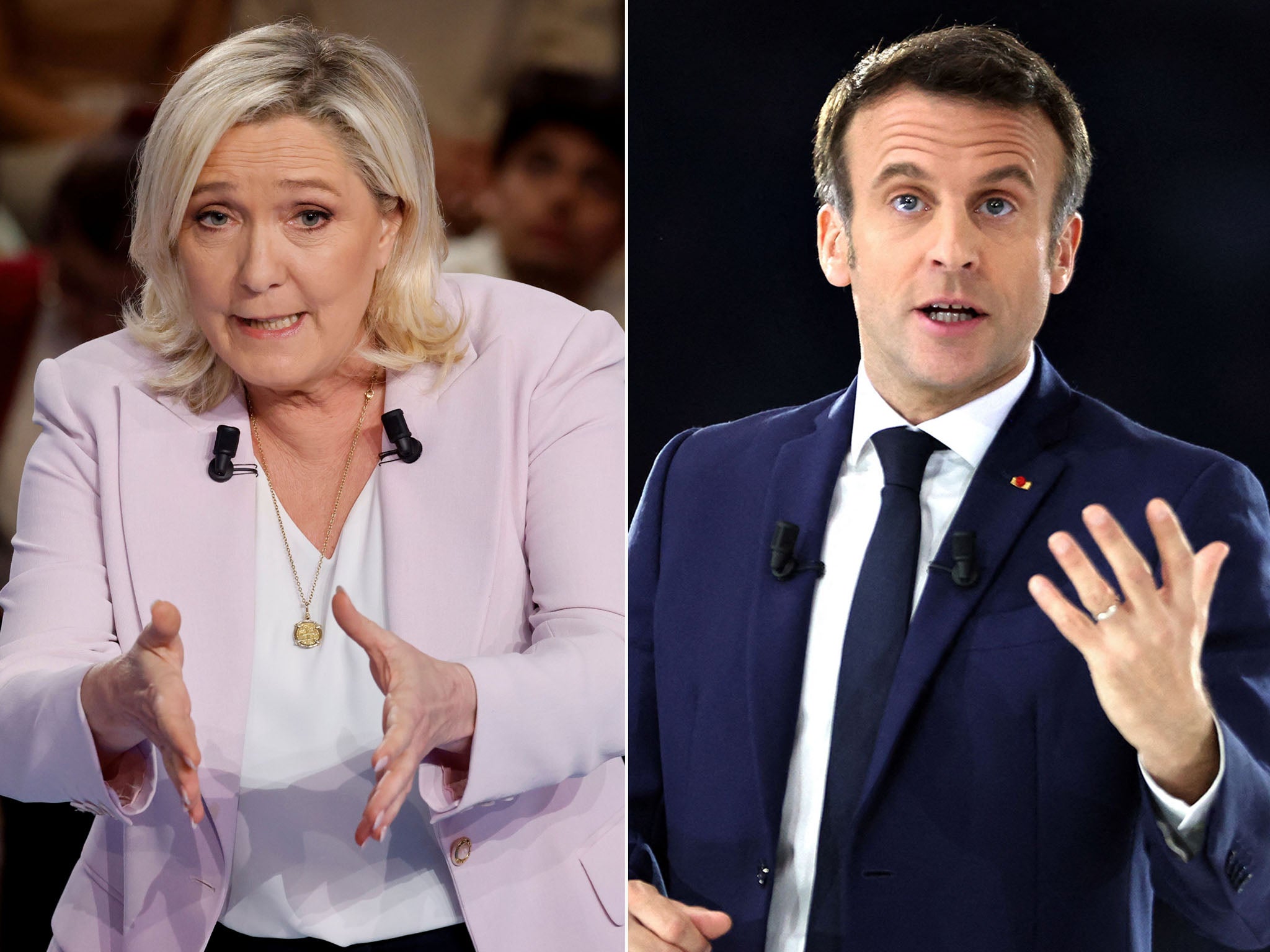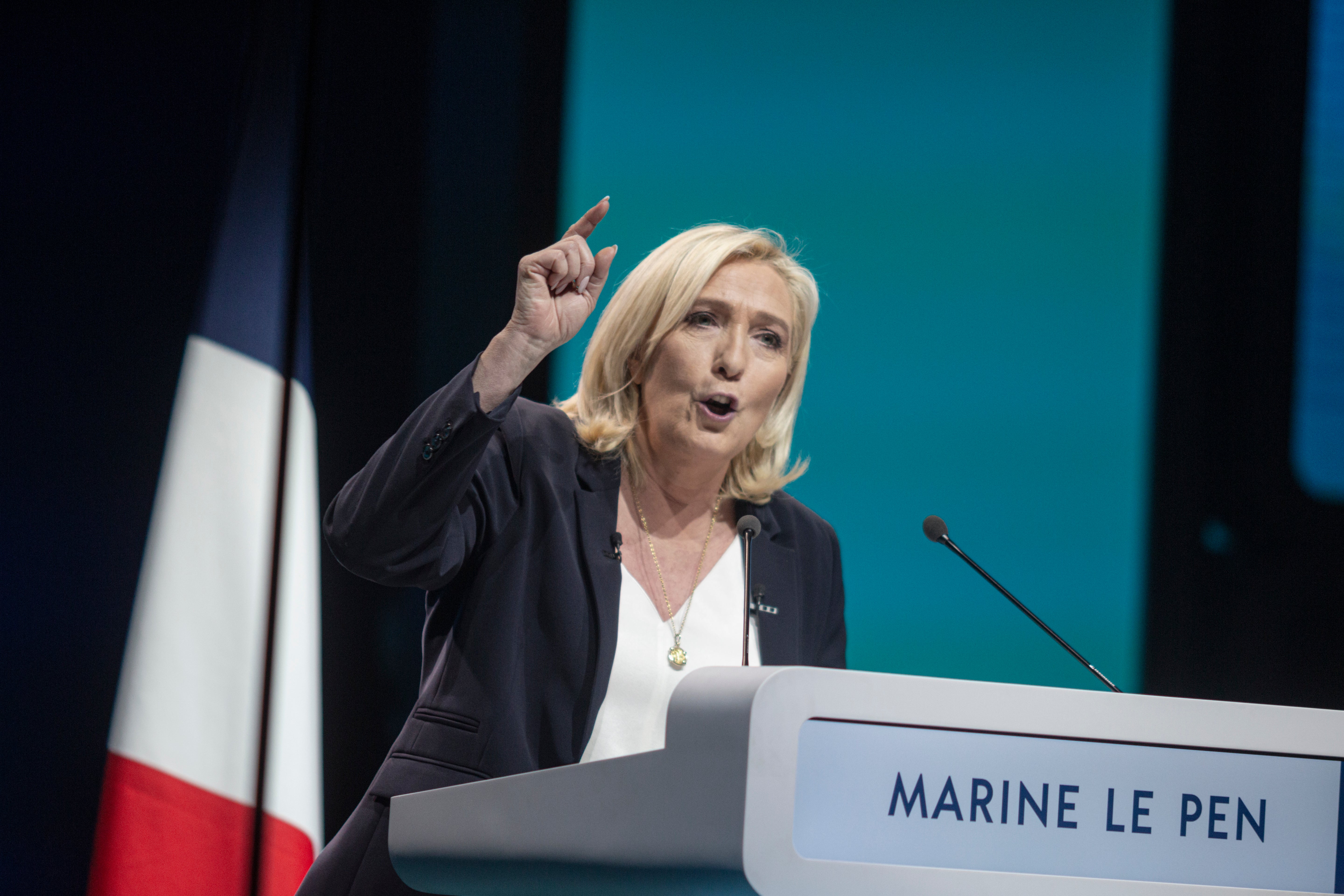French presidential election 2022: Who are the frontrunners and when do polls open?
Incumbent president is facing challenges from both far left and far right

Your support helps us to tell the story
From reproductive rights to climate change to Big Tech, The Independent is on the ground when the story is developing. Whether it's investigating the financials of Elon Musk's pro-Trump PAC or producing our latest documentary, 'The A Word', which shines a light on the American women fighting for reproductive rights, we know how important it is to parse out the facts from the messaging.
At such a critical moment in US history, we need reporters on the ground. Your donation allows us to keep sending journalists to speak to both sides of the story.
The Independent is trusted by Americans across the entire political spectrum. And unlike many other quality news outlets, we choose not to lock Americans out of our reporting and analysis with paywalls. We believe quality journalism should be available to everyone, paid for by those who can afford it.
Your support makes all the difference.France is set to go to the polls this weekend to vote for the country’s next president.
Emmanuel Macron, the current president, is running along with a host of other candidates.
Here is what we know about the 2022 race:
How does it work?
The candidates face a first vote on Sunday 10 April.
If no candidate wins 50 per cent of the vote - as forecast - there is a second vote on 24 April. In this run-off, the two candidates with the most votes go head to head.
Who are the key candidates?
Mr Macron, the centrist current French president, is running for second term.
He is facing two challenges from the far-right: Marine Le Pen for the National Rally party, who he fought to win the last election in 2017, and the pundit Eric Zemmour, who has faced fines for inciting both racial and religious hatred.
Jean-Luc Melenchon on the far left for La France Insoumise (France Unbowed) and Valerie Pecresse for the conservative The Republicans are also among the key candidates.

Who else is running?
Yannick Jadot is candidate for the Greens, Fabien Roussel for the French Communist Party, and Anne Hidalgo, the current mayor of Paris, for the Socialists.
Far-left Nathalie Arthaud is running for Lutte Ouvriere (Workers’ Struggle), Philippe Poutou for the New Anti-Capitalist Party and Nicolas Dupont-Aignan for the right-wing Debout la France (France Arise)
Jean Lassalle, a centrist politician once fined for wearing a yellow vest - or gilet jaune - in parliament, has also thrown his name in the ring.

What are the key issues?
The war in Ukraine, energy, the economy, the retirement age and immigration have all been at the forefront of the agenda.
The current president has vowed to keep investing in the French military and to build on France’s renewable capabilities.
He also wants to progressively raise the retirement from 62 to 65, while boosting the minimum monthly pension. Mr Melenchon wants to lower the retirement age to 60, while Ms Le Pen wants to keep it at 62 and raise the minimum pension.
Opinion polls show purchasing power is voters’ top concern amid a huge increase in energy prices and growing inflation. This is what Ms Le Pen has focussed her campaign on.

Mr Macron is pushing for restrictive immigration policies, including strengthening external borders of the European passport-free area and the creation of a new force to control national borders. However, the far-right candidates take an even tougher stance.
Among Ms Le Pen’s plans are social benefits for the French only and deporting foreigners who stay unemployed for over a year. Meanwhile Mr Zemmour wants asylum status to be restricted to no more than 100 people per year and to create a coast-guard military force to stop arrivals by sea.
Both far-right candidates also have policies to ban Muslim headscarves in public places.
What do the polls say?
Mr Macron is coming out as the frontrunner.
Polls forecast both him and Ms Le Pen gaining the most votes in the first round, taking the contest to a second vote.
But the current president’s comfortable lead in polls has eroded in the past week as far-right challenger Marine Le Pen and Melenchon both made gains. Surveys show nearly half of all voters intend to shun the centre-ground and cast a ballot for a candidate on the far right or hard left.
Mr Marcon is still predicted to come out top. But his projected margin of victory is much narrower than when he was elected in 2017 and he is facing stiff competition from Ms Le Pen, who has softened her rhetoric - while still trumpeting policies targeting immigrants and Muslims - and tapped into the day-to-day grievances of average voters.
According to an Ipsos-Sopra Steria poll on Wednesday, he is forecast to win 54 per cent of the vote in a run-off against the National Rally candidate in the second round.
Join our commenting forum
Join thought-provoking conversations, follow other Independent readers and see their replies
Comments